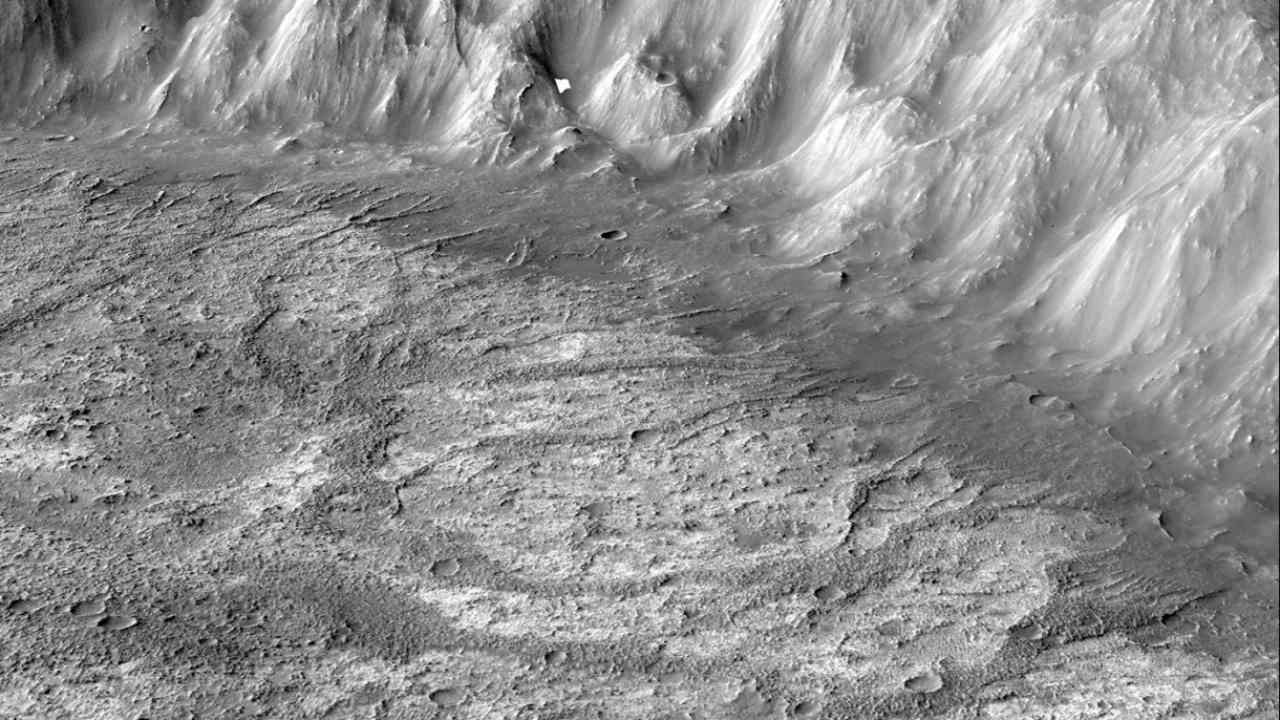FP TrendingApr 01, 2021 18:33:25 IST
A new type of ancient crater lake has been discovered on Mars. The unnamed crater lake provides evidence for ancient streams and ponds. Researchers involved in this study couldn’t find any evidence for the presence of underground water activity or any inlet channel from where water could have entered the crater lake. However, they have concluded that this system was supported by a long-lost Martian glacier, as reported in a news article published by Brown University.
This new type of crater lake is different from the ones that are currently being explored by the rovers of the National Aeronautics and Space Administration (NASA). They are currently exploring Gale and Jezero crater lakes.

Raised ridges spidering across the floor of a Martian crater were likely created by runoff from a long-lost glacier that once draped the planet’s southern highlands. Credit: NASA
The study was led by Ben Boatwright, a PhD student at the university. The findings of the research were published in the Planetary Science Journal, one of the American Astronomical Society peer-reviewed journals, on 12 March.
According to the researchers, water got into the crater by the runoff from a Martian glacier. This was the reason why it did not leave behind a valley. If the water had flown directly on the ground then it would have left a valley.
Speaking about their finding, Ben said that their research provides clues about the early climatic condition of Mars. As per Ben, the new study which points towards ancient glaciation could address the lack of geological evidence for cold and icy conditions on early Mars.
This development comes after researchers from the California Institute of Technology (Caltech) and NASA’s Jet Propulsion Laboratory (JPL) also published new research they found that the ancient Martian water has been trapped within minerals in the crust of Mars. The study suggested that anywhere between 30 to 99 percent of the missing water of Mars may be hiding in the crust.










